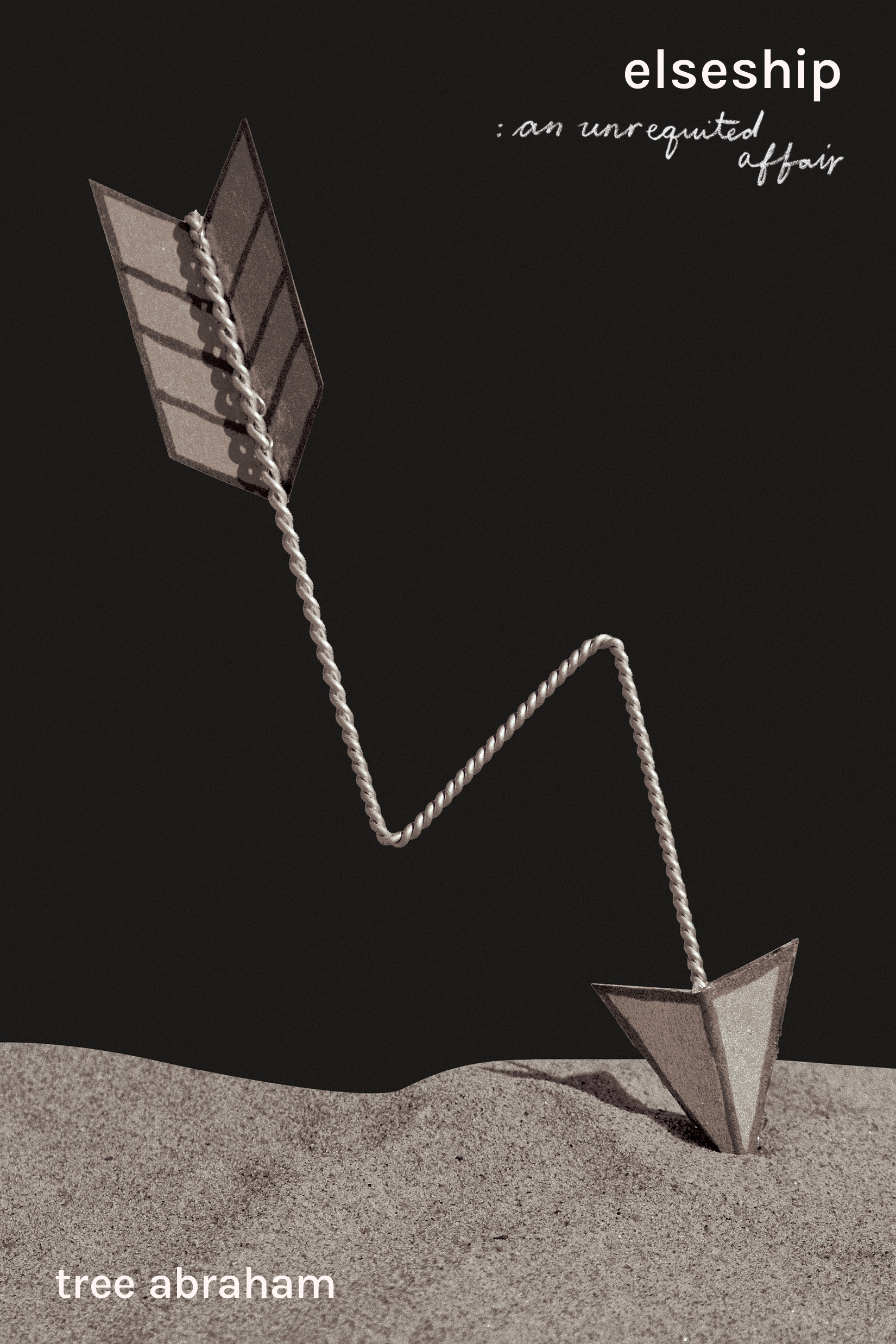Elseship
by Tree Abraham
Book*hug Press
282 pages
$25
In this dazzling work of creative non-fiction that brings together perceptive prose and mesmerizing visuals, Ottawa-born writer and book designer Tree Abraham theorizes friendship, love, identity, and language by meditating on the particularity of a relationship that evades easy categorization. As it forms a mosaic of stories, lists, quotations, definitions, and unanswered questions, Elseship lovingly attends to the confusing yet wondrous complexity of an “else” that resides somewhere between friendship and unrequited love.
Inspired by French novelist Gustave Flaubert’s desire to find the “most precise ‘right word’ (le mot juste) for every occasion,” Elseship is deeply invested in the power that words and narratives hold as containers of meaning. Abraham explains the book’s project to her beloved: “[t]o endure our complexity, I had to actively solder facets of us into a meaningful narrative.” While Elseship tenderly holds many ideas and experiences at once, Abraham offers a succinct summary of its basic premise in the opening pages. Addressing the person on the other side of the asymmetry, she writes: “You see, we started as housemates, soon became friends . . . then I fell in love and you didn’t and we kept going, being housemates, being friends, becoming something else. What we’ll end as—there isn’t a word for that.”
Through her insightful and self-honest reflections, Abraham manages to avoid the confessional clumsiness to which memoirs can sometimes be susceptible. She brings a sense of fluidity and playfulness to the taxonomies she constellates, taking care to find words that describe a seemingly nameless relationship. Abraham is careful to not pin down experience with language too quickly. Through sharing her nonlinear process of sensemaking, she offers readers a language that holds space for, and even celebrates, asymmetrical bonds.
In her kaleidoscopic contemplation of which lexical framework, if any, might best fit the “else” of this impactful “-ship,” Abraham looks, at times, through the lens of queer relationality. She borrows a definition from writer and activist Shon Faye, who contends that “[t]o be queer is to reject definition by replacing labels with a question.” If, through reaching past the confines of limiting labels, queerness opens up possibilities for new modes of being and being-with, Elseship, in a way, embodies queerness in its refusal to placate its reader with simple answers to the multitude of questions that it raises.
Elseship is a gift—one that is sure to resonate deeply with those who dare to dwell in the fluid spaces between so many different types of love. Through her delicate attentiveness to the weight that words carry, Abraham writes towards a language that creates space for “love beyond [the] structure” of “amatonormative wants,” showcasing and celebrating that queer friendship is not always so straightforward.














